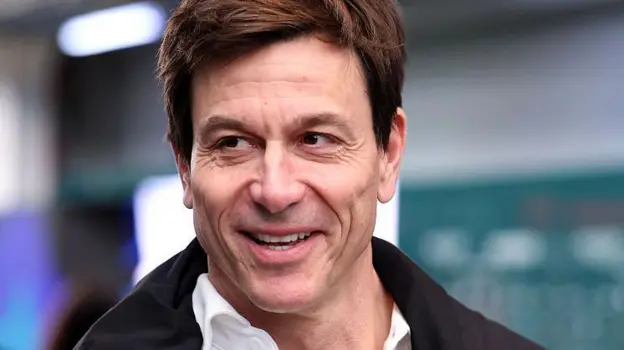Toto Wolff has sold 15% of his shareholding in the Mercedes Formula 1 team to American billionaire George Kurtz, in a landmark deal that values the eight-time constructors’ champions at a record $6bn (£4.6bn). The valuation sets a new high for an F1 team and reflects the sport’s soaring commercial growth.
Kurtz, 55, is the founder of cybersecurity giant CrowdStrike, a long-time Mercedes sponsor. His investment comes from personal funds and not from the company. The 15% stake sold represents 5% of the team, as Wolff’s holding company owns a one-third share of Mercedes F1. The Austrian is expected to net around $300m (£230m) from the transaction but will remain in place as team principal and chief executive officer.
Team governance will remain unchanged. Kurtz will not join the main board but will gain a seat on the strategic steering committee, where he will work alongside Wolff, Mercedes Group chairman Ola Källenius and Ineos chairman Sir Jim Ratcliffe. The committee discusses high-level issues related to the team’s direction and development.
Kurtz described his role as “a seat at the table to provide input and discussions”, while emphasising his belief in the long-term commercial strength of Formula 1. “If you’re investing in this, you believe the sport is going to grow,” he said. “Formula 1 is at an inflexion point where it’s a thriving business, and team valuations are going to grow.”
Wolff praised the American’s diverse background in motorsport and business. “George’s background is unusual in its breadth: he’s a racer, a loyal sporting ambassador for Mercedes-AMG, and an exceptional entrepreneur,” he said. “He understands both the demands of racing and the realities of building and scaling technology businesses. That combination brings specific insight that is increasingly relevant to the future of Formula 1.”
The deal represents an extraordinary rise in Mercedes F1’s valuation. When Ineos purchased its own one-third stake in 2020, the team was valued at just £625m. Today’s $6bn figure marks more than a seven-fold increase in five years. The surge mirrors the dramatic rise in F1’s global popularity, driven by expanding broadcast audiences, the impact of Netflix’s Drive to Survive, and the addition of major races in the United States.
A recent cultural milestone further illustrates the sport’s momentum: F1, the Brad Pitt-led feature film released last summer, has grossed over $630m (£482m), becoming the highest-earning sports movie in history.
Mercedes remains one of the championship’s two most valuable teams alongside Ferrari, which Forbes values at $6.5bn (£5bn). Other major teams trail behind, including McLaren, Red Bull, Aston Martin and Williams. McLaren’s own valuation jumped to £3.5bn earlier this year during a change in ownership structure.
Valuations in Formula 1 are increasingly comparable to those of major European football clubs. Mercedes is now considered to be worth slightly less than Manchester United but more than Liverpool, placing them within the top tier of global non-US sports franchises. US-based leagues such as the NFL and NHL remain significantly more valuable, but Kurtz believes F1 has the potential to reach similar heights. “Can it grow into something like the NBA or the NFL? I think so,” he said.
A key contributor to these rising values is the introduction of the cost cap in 2021, which created predictable expenditure and made F1 teams more financially attractive. Revenue streams have also stabilised, with long-term sponsorships, prize money and commercial partnerships providing consistent income. Mercedes also earns additional revenue from within the sport, including selling gearboxes to Williams and Aston Martin.
With three races left in the current season, Mercedes sit second in the constructors’ standings. Lead driver George Russell has won two of the year’s 21 grands prix and lies fourth in the drivers’ championship behind Lando Norris, Oscar Piastri and Max Verstappen.
The entry of Cadillac, under General Motors, next season is expected to raise team valuations even further, signalling continued confidence in the sport’s long-term commercial trajectory.



